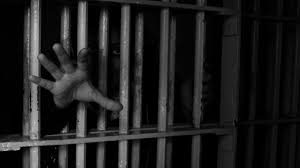Considerations for Defendants Suffering from Mental Conditions
Under section 32 of the Mental Health (Forensic Provisions) Act 1990 (NSW), an accused whom the court deems as a sufferer of a mental condition or a mental illness is eligible for exemption from criminal sentencing. Instead, he or she will be able to receive treatment for their specific condition or illness.
Who can benefit from Section 32?
If the Magistrate feels that the accused is developmentally disabled or has a mental illness at the beginning or during Local Court proceedings, he or she may be eligible for special consideration under Section 32. Even if the accused is not suffering from a mental illness, he or she might be eligible for Section 32, if treatment is available for their mental condition in a hospital.
If the Magistrate feels that the accused is eligible, they may grant them bail or adjourn the proceedings. Or the Magistrate may issue any other order. The Magistrate could dismiss the charge levelled against the defendant and/or discharge them into the care of another person subject to some conditions or unconditionally.
The defendant may be required to get an assessment of their condition and undertake treatment. Keep in mind that when the Magistrate dismisses a charge, the defendant is found neither guilty nor innocent.
In certain cases, the Magistrate may order that the defendant should be detained by the police in a hospital for the assessment of their specific mental condition or illness.
Who is fit to be tried?
A mental illness or a mental condition makes a person unfit to be tried. If this unfitness is cited before the person is summoned to the court, the attorney general has to determine whether it is appropriate to conduct an inquiry before the hearing begins.
How does the court determine whether the person is fit to be tried?
The court is required to conduct an inquiry into the question of the defendant’s fitness to be tried. Before conducting this inquiry, the court may grant bail, adjourn proceedings, or request the defendant to undergo a psychiatric test or remand the defendant to custody for up to 28 days.
If the court is convinced that the offence is of trivial nature or that the person has a disability, it may dismiss the charges.
If the accused is found to be unfit to be tried, the Magistrate has to refer them to the Mental Health Review Tribunal.
After considering the balance of probabilities, the tribunal will determine whether the accused will be fit to be tried within twelve months after they were found unfit to be tried.
If the tribunal comes to the conclusion that the accused will become fit to be tried within 12 months, then the tribunal also has to decide whether the accused is suffering from any mental illness or a condition for which medical treatment is available.
Afterward, a hearing is conducted before the Mental Health Review Tribunal. The hearings are conducted informally and are not bound by any specific rules of evidence. The tribunal members will ask various questions to gather all the information they need. The relatives can attend hearings or make oral submissions.
The Mental Health Review Tribunal can specify the terms and conditions under which the accused must accept medication, counselling, therapy or rehabilitation while living within the community. If the accused breaches those terms, they can get confined to a mental hospital.







